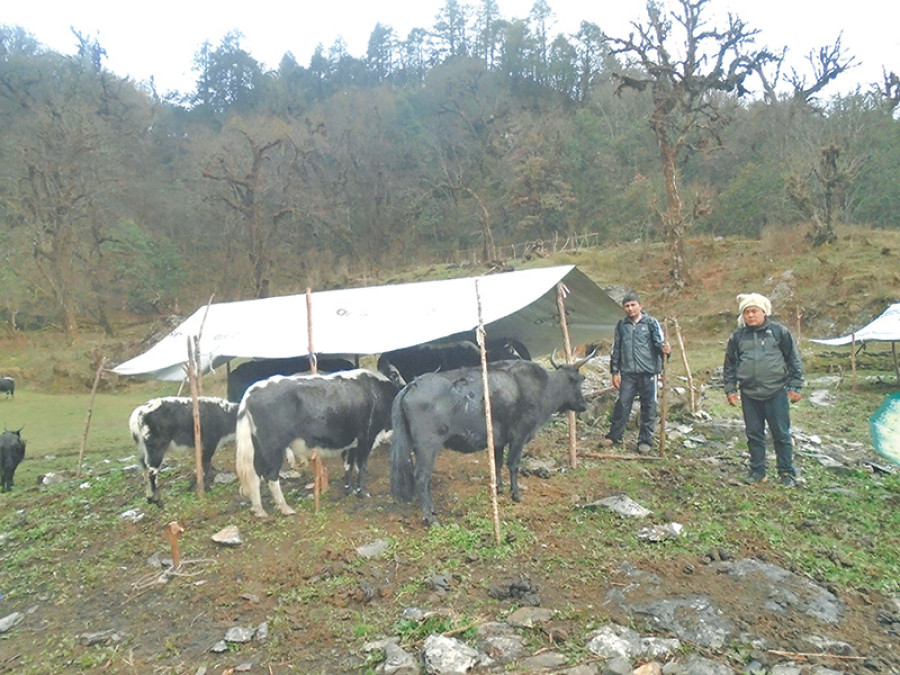Money
Yak dairy products find market in China
Dinesh Ghale of Tipling in Dhading district spends most of his days attending to his herd of yaks. Yak farming has been his family profession and he has not been able to abandon it.
Harihar Singh Rathaur
Dinesh Ghale of Tipling in Dhading district spends most of his days attending to his herd of yaks.
Yak farming has been his family profession and he has not been able to abandon it.
Throughout the day, Ghale takes his yaks to the grazing field, extracts milk from the animals and produces dairy products such as paneer and traditional cheese known as chhurpi.
Ghale owns a herd of 35 yaks of which, nine produce milk. Milk generated by these animals is adequate to produce various dairy products, which are not only sold in the country but in bordering Chinese town of Kerung as well.
“I earn around Rs50,000 to Rs80,000 per month by selling dairy products,” Ghale says. “This income is enough to send my kids to school and cover other household expenses.”
Most of the land in Ghale’s village is not arable. This has prompted most of his colleagues to flee to the Gulf and Malaysia to do menial jobs.
But Ghale is gradually setting an example in the village by demonstrating foreign employment is not a panacea for improvement in income level.
Many youths of Tipling, Sertung and Lapa in northern Dhading and neighbouring Rasuwa district have lately embraced yak farming as a profession.
And like Ghale most of these yak farmers produce butter, cheese, paneer and chhurpi from milk generated by yaks. Most of these dairy products are later sold in Kerung.
Income generated from sales of these dairy products has helped locals of Dhading
and Rasuwa to raise their living standard.
Yak farming, however, was not always a lucrative job. In the past, many farmers had to throw away milk due to low domestic demand.
Things changed only after demand for yak dairy products started going up in the bordering Chinese town of Kerung.
This has helped dairy farmers to fetch good prices for their products. Today, a litre of yak milk, sells for Rs50.
As the demand for yak dairy products is going up, those with savvy business acumen have even established dairy factories.
Those producing dairy products at a mass scale generate an income of Rs300,000 to Rs600,000 a month.
“Establishment of dairy factories has provided a new market for yak farmers to sell their products,” Aaiti Maya Tamang, a local of Tipling, said.
All these developments have encouraged more people to adopt yak farming. Yet problems have started cropping up, threatening the sustainability of the business.
For instance, farmers are now facing shortage of grazing fields. To address this problem, the government must train farmers to grow suitable grass that can be used as fodder for yaks, locals said.
In this regard, the government’s Livestock Service Office has introduced a programme for development of grazing fields and improvement of yak sheds in northern Dhading.
“A budget of around Rs2.3 million has been earmarked in the current fiscal year for this purpose,” Devendra Bhagat, chief of the Livestock Service Office, said.




 22.26°C Kathmandu
22.26°C Kathmandu














